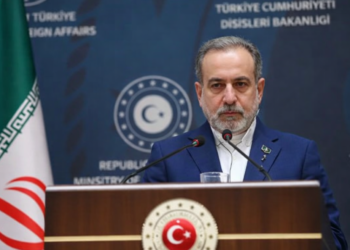Pakistan has launched a specialized Army Rocket Force to oversee missile combat operations in conventional warfare, a direct response to its escalating military rivalry with neighboring India.
Prime Minister Shehbaz Sharif unveiled the new branch during Islamabad’s commemoration of the May conflict—the deadliest clash between the nuclear-armed foes in decades.
The force, equipped with cutting-edge technology, will operate under a dedicated military command to streamline missile deployment in potential conflicts, a senior security official confirmed.

Timed just before Pakistan’s 78th Independence Day, Sharif’s declaration emphasized the force’s role in “targeting the enemy from all sides,” reinforcing Islamabad’s conventional warfare readiness.
While specifics remain undisclosed, analysts interpret the move as countering India’s recently upgraded missile arsenal, including its Agni-V and BrahMos systems. The development follows April’s Kashmir crisis, where 26 civilian deaths in Indian-administered territory sparked accusations of Pakistani involvement—claims Islamabad denies.
India’s Foreign Ministry had meanwhile, swiftly rebuffed the announcement, dismissing it as Pakistan’s habitual “modus operandi to whip up anti-India rhetoric.” The diplomatic friction showed seven decades of hostility since the 1947 partition, with three wars fought; two over Kashmir. May’s aerial skirmishes saw both nations deploy missiles, drones, and fighter jets, highlighting the ever-present risk of conventional warfare spiraling into nuclear confrontation.
The Kashmir Flashpoint and the Perpetual Catalyst for Military Buildup
The disputed Kashmir region remains the core irritant in Indo-Pakistani relations, with both nations controlling portions while claiming sovereignty over the entire territory. Recent clashes have exacerbated tensions, prompting Pakistan to prioritize rapid-response missile capabilities. The Army Rocket Force’s creation suggests a doctrinal shift toward preemptive strike readiness, mirroring India’s Cold Start strategy—a limited-war doctrine designed to punish Pakistan without triggering nuclear retaliation.
Why It Matters
As Pakistan joins India in establishing dedicated missile forces, nonproliferation experts warn of an accelerating arms race in one of the world’s most volatile regions. Both nations possess nuclear-capable ballistic and cruise missiles, with ranges covering each other’s major cities. The new Pakistani unit may integrate systems like the Shaheen-III (2,750km range) and Babur cruise missiles, further destabilizing the delicate deterrence balance.
Since independence, India and Pakistan have engaged in an endless cycle of military one-upmanship. India’s recent advancements in hypersonic technology and Pakistan’s countermeasures reflect a pattern where diplomatic stalemates fuel technological one-upmanship. With neither side willing to compromise on Kashmir, the Army Rocket Force symbolizes Islamabad’s commitment to maintaining some parity even as economic disparities widen between the two nations.

















